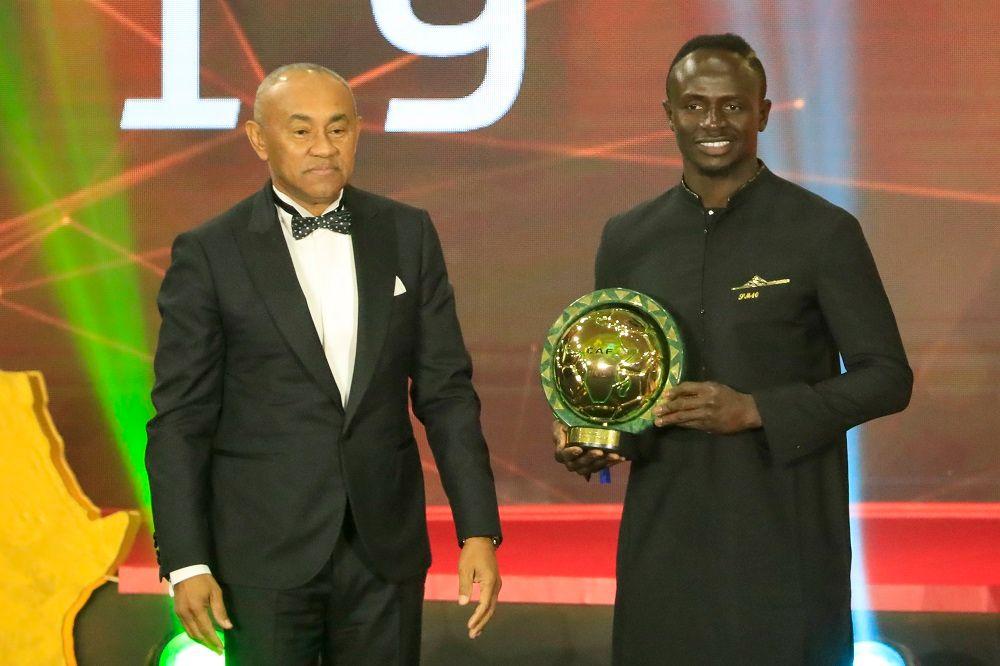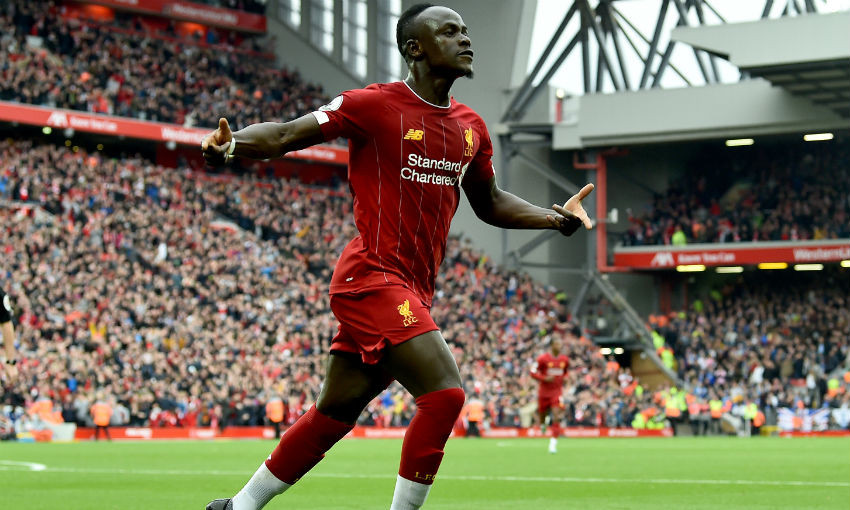“It’s a shame to see Mane finish in fourth place.
“But I think there have been a lot of great players this year. That’s why it was difficult to choose a particular player. But I chose Sadio Mane because he’s a player that I like.
“Mane achieved a great year that was exceptional for the entire Liverpool team. That’s why I chose him.”
Those were the words of Lionel Messi eulogizing the talent of Africa’s King of soccer, Sadio Mane – after the former pipped the latter to the 2019 Ballon d’Or.
That was in December 2019 and fast-forward to 2020 – the beginning of a new decade, Africa would bow to the shrewdness of the Senegalese on the soccer field and declared him King of Soccer on the continent.
Twice – 2017 and 2018 – Mane’s talent and dexterity with the rounded object was overlooked by jurors of the sport in Africa, finishing runner-up to his Liverpool team-mate Mohamed Salah of Egypt.

At a plush ceremony held in the city of Hurghada in Egypt on January 7, the Confederation of African Football named Mane the 2019 African Player of the Year after winning the UEFA Champions League with his club Liverpool and leading Senegal to the Africa Cup of Nations final.
Mane thus is only the second Senegalese to win the award after El Hadji Diouf. Diouf was the winner in 2001 and 2002.
Mane’s journey to being crowned Africa’s king of soccer as well as being Messi’s favorite soccer player in 2019 hasn’t come by easy, despite the talent.
He was born in April 1992 in Sédhiou, Senegal.
He grew up on soccer in the dust of Bambali, a village deep in the south of Senegal.
“Since I was two or three years old, I remember always being with the ball. I would see kids playing on the street, and would join them. That is how I started – just on the roads,” Mane told Goal in 2016.
As he grew older, his love for the beautiful game heightened. He would go to watch matches, especially those of the Senegal national team. “I wanted to see my heroes and imagine myself as them.”
The 2002 World Cup in which Senegal got to the quarter-finals in their first appearance, famously beating France who were the holders in the opening game left an indelible mark on Mane.
He left his place of birth – to Senegal’s capital Dakar – pursuing that soccer career he always dreamt of. Mane was in the company of his uncle. They made the near 500-mile journey for trials.
With torn boots and tattered shorts, Mane was determined to make good use of any opportunity that came his way.
“We went to them and there were lots of boys being tested and getting organized into teams. I will never forget this, and it is funny now, but when I went to try out there was an older man that looked at me like I was in the wrong place,” Mane recalled.
Mane continued: “He asked me ‘are you here for the test?’ I said I was. He asked me, ‘with those boots? Look at them. How can you play in them?’. They were bad, really bad – torn and old. Then he said, ‘and with those shorts? You don’t even have proper football shorts?’
“I told him what I came with was the best I had, and I only wanted to play – to show myself. When I got on the pitch, you could see the surprise on his face.
“He came to me and said ‘I’m picking you straight away. You’ll play in my team.’ After those trials, I went to the academy.”
Despite his talent which was and still undisputed, Mane’s family didn’t want him to be a soccer player. Everyone in his village told him he was exceptionally gifted, but his family wasn’t the soccer-loving type.
Their lives revolve around religion and they wanted different things for him. But Mane wouldn’t give up.

“When they could see that in my head and my heart there was only football, I started to convince them to let me go to Dakar,” Mane told Goal.
“In the beginning, they didn’t accept it, but the more they saw how much I wanted it and that there was nothing else for me, they helped me.”
Mane went to Dakar and lived with a family he said he didn’t “even know.” That family took him in and cater for him until he left for Metz in France.
On August 31, 2012, Mane moved to Austrian Bundesliga side Red Bull Salzburg for the third biggest transfer fee that Metz had ever received.
At the end of August 2014, Mane forced a transfer out of the club, by not coming to the training and to the most important game for Salzburg at that time to qualify for the Champions League.
He was transferred to Premier League side Southampton on 1 September 2014 signing a four-year contract.
On 28 June 2016, Mane joined Liverpool and has been instrumental in their development.
“Many, many, many people I grew up with, such skillful players, didn’t have the chance I did to become a professional.
“I knew the things that were hard were important for me to succeed. Now I am here, with no regrets, living my dream,” he would say.










